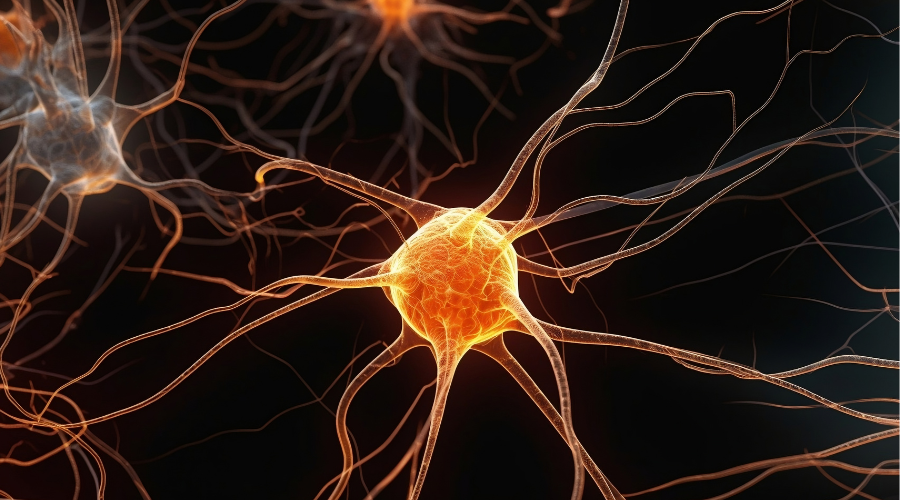Stress is inevitable in student life and is often seen as a necessary evil accompanying academic challenges. However, while stress can sometimes be a motivating factor, its detrimental effects on cognitive functions, particularly memory, cannot be overlooked. In this blog, we delve into the intricate relationship between stress and memory in students so you can take better steps to manage stress and improve your memory.

Understanding the Brain's Response to Stress
Before delving into the effects of stress on memory, it's crucial to understand how the brain responds to stress. When faced with a stressful situation, the body releases hormones such as cortisol and adrenaline as part of the fight-or-flight response. While this response is essential for survival, chronic stress can lead to an overproduction of these hormones, adversely affecting brain functions, including memory. Learn natural ways to relax as a student here.

Impact on Memory Encoding
One of the primary ways stress affects memory is by impairing the process of memory encoding. Encoding is the first step in forming memories, where information from the environment is processed and stored in the brain. Research suggests that high levels of stress hormones can disrupt this process, making it difficult for students to encode and retain new information effectively.
In a state of stress, the brain prioritizes survival over learning, directing resources away from higher cognitive functions like memory encoding. As a result, students may find it challenging to concentrate and focus on their studies, leading to worse academic performance.
Impacts of Cortisol
Stress doesn't just make you feel overwhelmed—it can also mess with your brain's ability to remember things correctly. Think of memory encoding as laying a solid foundation for a building. When you're stressed out, your brain gets flooded with hormones like cortisol, which basically hijacks its attention. Instead of focusing on learning and remembering, your brain shifts gears to deal with the stress, like it's in survival mode. This means it's harder for you to absorb new information effectively. You might find it challenging to concentrate in class or understand what you read in textbooks. It's like trying to build a house on shaky ground—making everything stick is hard. This can lead to struggles with learning and lower grades in school.

Effects on Memory Retrieval
In addition to impairing memory encoding, stress can also hinder memory retrieval—the process of accessing stored information when needed. The hippocampus, a brain region crucial for memory formation and retrieval, is particularly sensitive to stress hormones. Excessive cortisol levels can interfere with the functioning of the hippocampus, making it harder for students to recall information during exams or academic assessments.
Furthermore, stress can trigger anxiety and negative emotions, which further exacerbate memory retrieval difficulties. Students may experience "blanking out" or forgetting important information due to the overwhelming pressure they feel during high-stakes situations.
Stress, Memory and Sleep
The intricate relationship between stress, sleep, and memory underscores the profound impact of psychological well-being on cognitive function. Chronic stress disrupts sleep patterns and compromises the quality of restorative sleep essential for memory consolidation. Heightened stress levels trigger the release of cortisol, a hormone that can interfere with the body's natural sleep-wake cycle, leading to difficulty falling asleep and staying asleep.
Consequently, insufficient or disrupted sleep impairs the consolidation of newly acquired information into long-term memory, hindering students' ability to retain and recall essential concepts. Moreover, sleep deprivation exacerbates cognitive deficits associated with stress, creating a detrimental cycle that undermines academic performance and overall cognitive functioning. Therefore, addressing stress and promoting healthy sleep habits for students is crucial to safeguarding memory retention and optimizing learning outcomes.

Long-Term Implications of Stress on Memory
Chronic stress during the formative years of education can have long-term implications for students' cognitive development. Prolonged exposure to stress hormones can lead to structural changes in the brain, particularly in regions involved in memory and learning. Studies have shown that individuals who experience high levels of stress in adolescence may be at greater risk of cognitive decline later in life.
Moreover, the negative impact of stress on memory can create a vicious cycle. Poor academic performance due to stress-induced memory problems can lead to further stress and anxiety, perpetuating a downward spiral that is challenging to break.

Strategies to Lessen Stress and Improve Memory
Here are some helpful strategies you can use to tackle stress and boost your memory:
Take Charge of Stress
Try incorporating stress management techniques like deep breathing, mindfulness, or engaging in physical exercise. These activities can help lower cortisol levels and bring a sense of calmness, making it easier to focus and remember what you're learning. Also, taking vitamins that help with sleep and anxiety can calm your brain and help you rest, such as our Dream Easy natural supplements.
Study Smart
Instead of cramming everything in at the last minute, use effective study methods like spaced repetition, active recall, and staying organized. Breaking your study material into smaller, manageable chunks and reviewing it regularly can reduce pressure and improve how well you remember things.
Prioritize Healthy Habits
Remember, a healthy lifestyle plays a big role in how well you handle stress and retain information. Ensure you get enough sleep, eat a balanced diet, and stay active. A well-rested body and mind are better equipped to handle the demands of school. Additionally, student vitamins can help you get the nutrients you need for optimal brain function.
Don't Be Afraid to Ask for Help
If stress or anxiety is getting the best of you, don't hesitate to reach out for support. Your teachers, counsellors, or mental health professionals are there to help you navigate through tough times. Having someone to talk to and lean on can make a big difference in how you feel and perform academically. Remember, you're not alone in this journey. Learn about the best vitamins to help with memory and concentration here.

Stress is unavoidable in student life, but its detrimental effects on memory can significantly impact academic performance and overall well-being. By understanding how stress affects memory and implementing effective coping strategies, students can mitigate its negative impact and thrive in their educational pursuits. It is essential to prioritize mental health and create supportive environments that improve resilience and academic success.

